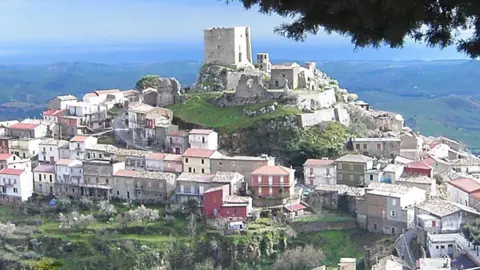
 Belcastro Municipality/Facebook
Belcastro Municipality/FacebookA small Italian village prevented its residents from contracting a serious disease.
A decree issued by the local city mayor, Antonio Torchia, states that people living in Belcastro “are requested… to avoid contracting any disease that may require emergency medical assistance.”
Belcastro is located in the southern Calabria region, one of the poorest regions in Italy.
Torchia said the move was an “obviously laughable provocation”, but its impact was greater than the urgent notices he sent to regional authorities highlighting shortcomings in the local healthcare system.
About half of Belcastro's 1,200 residents are over 65, and the nearest accident and emergency department is more than 45 kilometers (28 miles) away, the city's mayor said.
He added that A&E could only be accessed by a road with a speed limit of 30 kilometers per hour (18 mph).
The village's on-call doctor's office is also open sporadically and offers no coverage during weekends, holidays or after hours.
Torchia told Italian television that it was difficult “to feel safe knowing that if you need help, your only hope is to get to (A&E) on time” – and that the roads were almost “more dangerous than any illness”. “.
As part of the decree, residents were also ordered “not to engage in potentially harmful behaviors and to avoid household accidents,” and “not to leave the house frequently, travel or exercise, and (instead) rest for the majority of the time.”
It is unclear how these new rules will be implemented, if at all.
The sparsely populated region of Calabria – the top of the Italian boot – is one of the poorest regions in the country.
Political mismanagement and mafia interference have devastated the healthcare system, which had been placed under special management by the central government for nearly 15 years.
Rome-appointed commissioners have faced difficulties in tackling the massive levels of debt faced by hospitals, meaning Calabrians remain crippled by a serious shortage of medical staff and beds, as well as endless waiting lists.
Eighteen hospitals in the area have closed since 2009.
As a result, nearly half of Calabria's two million people seek medical help outside the region.
In 2022, it was announced that Cuba would send 497 doctors to the Italian region over three years to work in various medical facilities. Regional Governor Roberto Occhiuto said last year that these doctors had “saved” Calabria's hospitals.
Belcastro residents told local media that Mayor Torchia “did the right thing by highlighting this issue” and that the decision “will shake consciences.”
“He used a provocative edict to draw attention to a serious problem,” one man said.








